Meet Emory's Class of 2026

There’s nothing like the first day of school. Emory’s Class of 2026 arrived over the past week, landing on campus full of new hopes, dreams and aspirations in preparation for classes starting Wednesday.

AFTER THEY MOVED INTO THEIR NEW DIGS, figured out where to sit in the dining halls and walked through their schedules, first-year students on both the Atlanta and Oxford campuses participated in the annual Coca-Cola toast. With their pennants waving in the air and smiles on their faces, they marked the start to the year for Emory’s newest undergraduate students.
“They’ve just arrived on campus, but I can already sense the energy and potential of the Class of 2026,” says Emory President Gregory L. Fenves.
“These remarkable students have accomplished so much in their lives, both inside and outside of the classroom, and they are going to build on their experiences and thrive at Emory.”
Accomplished students from all over the world chose to attend Emory College of Arts and Sciences and Oxford College. They were selected from a pool of 33,517 applicants.
“This year, we had more impressive students to choose from than ever, based on the richness of the applicant pool,” says John Latting, associate vice provost for enrollment and Emory dean of admission. “This is the most diverse class we’ve ever seen by a large margin, which strengthens the undergraduate student body.”
Kelley Lips, assistant vice provost and dean of enrollment at Oxford College, adds, “Despite having the world shut down, it was great to see how students were able to engage in and expand their communities. The creativity we saw in how they wanted to leave their fingerprint and get involved was a part of their uniqueness as a cohort.”

Welcoming new pathways

Emory University offers two unique starting points for first-year students: They may enter Emory College of Arts and Sciences on the Atlanta campus or study for their first two years at Oxford College, on Emory’s original campus in Oxford, Georgia.
After the sophomore year, all students complete their undergraduate degree on the Atlanta campus through Emory College, Goizueta Business School or the Nell Hodgson Woodruff School of Nursing.
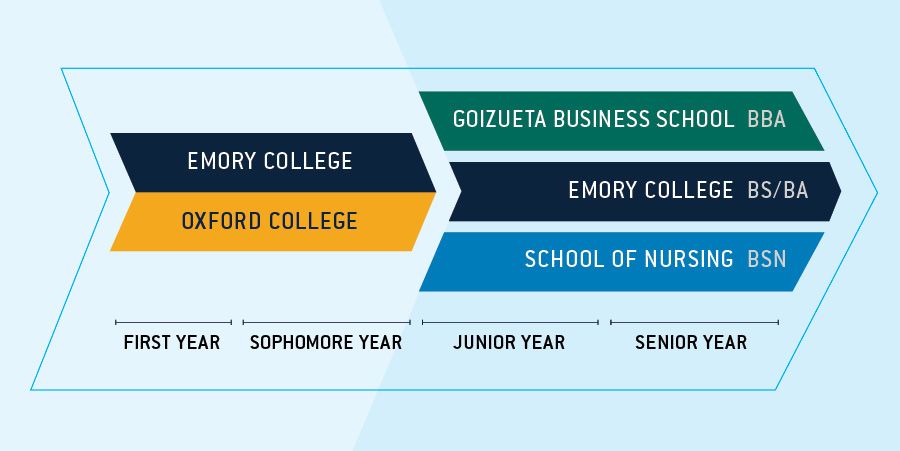
On the Atlanta campus, those participating in pre-orientation programs began arriving Monday, Aug. 15. Pre-orientation programs allow students to get a jump-start on exploring their interests, covering topics such as leadership development, religion and spirituality, and careers in STEM.
The rest of the new class arrived on Saturday, Aug. 19, as 1,434 first-year students, plus transfer students, began the four-day orientation for Emory College. Their introduction to campus life included moving into residence halls, campus tours, meeting faculty mentors, Songfest practice and new regional meetups for students and parents from all over the U.S. and Puerto Rico.
Returning Emory College students moved in on Sunday, Aug. 21.
“I couldn’t be more thrilled to welcome the Class of 2026 to Emory,” says Carla Freeman, interim dean of Emory College. “What makes their arrival especially exciting is the promise of a fully in-person academic year. I have every confidence they will seize the fullness of their Emory education and have a lasting impact on our campus and beyond.”

Emory College: Class of 2026
Emory College: Class of 2026
Oxford College welcomed 429 first-year students, who began new student orientation on Friday, Aug. 19. Sophomores at Oxford moved in on Monday, Aug. 22, in preparation for the first day of classes. International students began arriving throughout the week for pre-orientation activities.
“I look forward to welcoming our returning sophomores and another talented and diverse group of first-year students to Oxford College,” says Oxford College Interim Dean Kenneth Carter. “As a former Oxford student and longtime professor, I understand how the liberal arts foundation we provide can transform lives. Our outstanding faculty and staff are ready to help our students flourish — both personally and academically — in an environment that is challenging, inspiring and open and inclusive for all.”
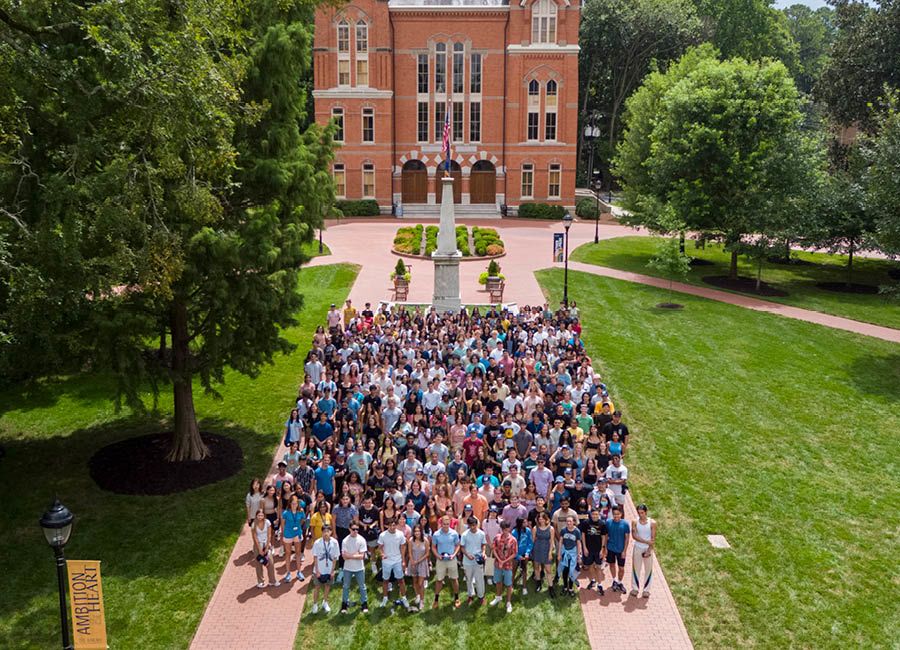
Oxford College: Class of 2026
Oxford College: Class of 2026

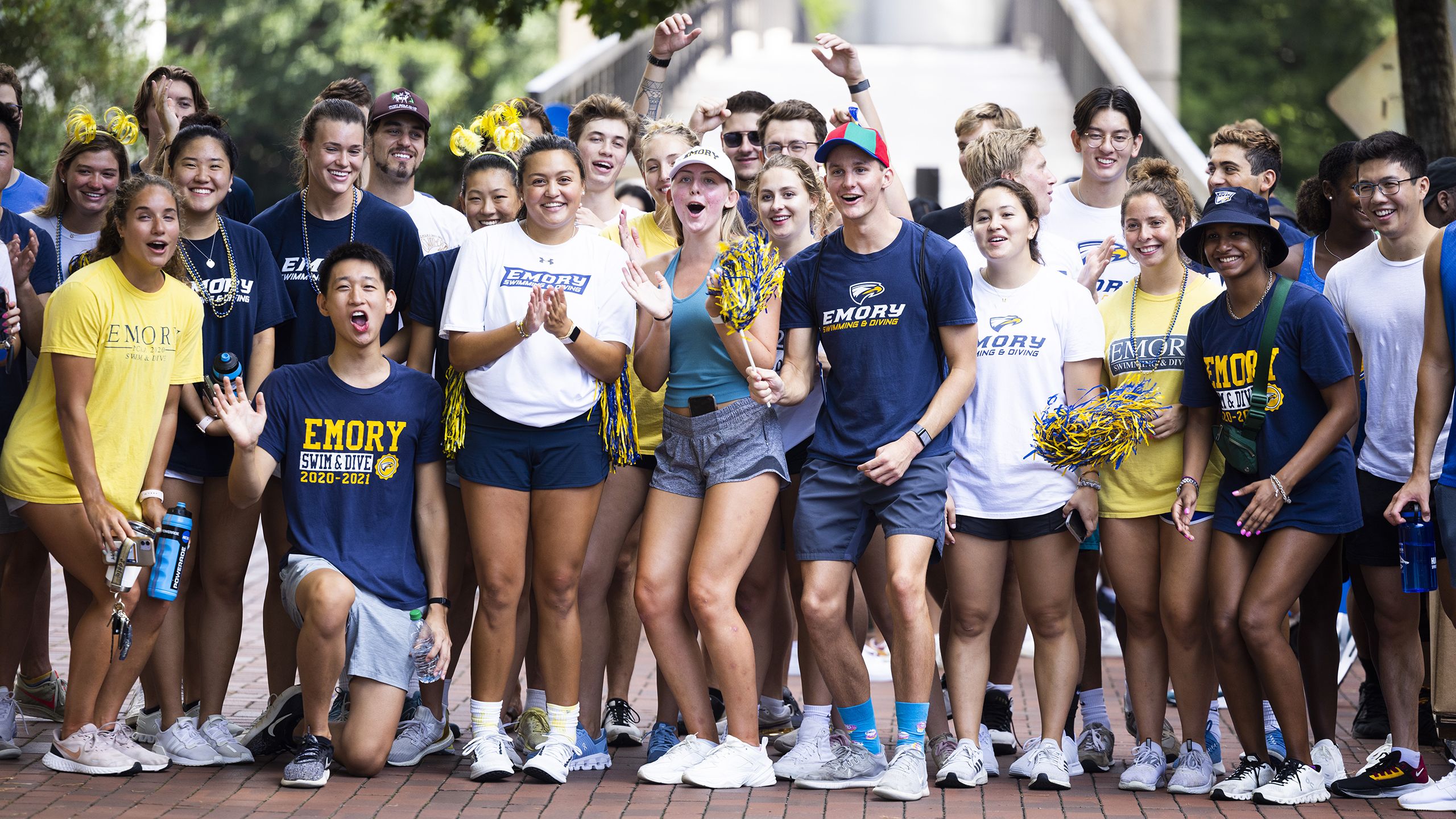
Diverse, talented scholars
In addition to having top academic scores, the Class of 2026 is one of the most dynamic in Emory’s history. Nearly 60% come from diverse racial backgrounds. They represent 40 countries and 48 states, plus the District of Columbia, Puerto Rico, Guam and the Mariana Islands. Incoming Emory College students speak 59 unique languages; incoming Oxford students speak 37 unique languages.
First-generation college students make up about 10.7% of the first-year class at Emory College and 11.4% at Oxford.
Latting says two factors that have greatly contributed to increasing the diversity of the first-year class are removing the standardized testing requirement and decreasing financial barriers. Emory participates in the Questbridge National College Match program, which matches outstanding high school seniors from low-income households with some of the nation’s best colleges. This year, there are 58 Questbridge scholars in the incoming class — 52 at Emory College and six at Oxford.
Increasing access has also changed the type of student who applies to Emory. Latting notes that students are more willing to share about their identities and family life in their applications. They bring unique perspectives to campus coupled with a deep desire to apply their scholarship to make positive change in their communities and the world.
“We are trying to raise that sense of vibrance and diversity by welcoming different perspectives because that’s the kind of community where everybody grows,” Latting says.
“Students today come in with a clearer sense of identity than students did perhaps 10 years ago. It’s progress. There’s an assumption built in there that I matter, and my perspective should be of value.”

Diverse, talented scholars
In addition to having top academic scores, the Class of 2026 is one of the most dynamic in Emory’s history. Nearly 60% come from diverse racial backgrounds. They represent 40 countries and 48 states, plus the District of Columbia, Puerto Rico, Guam and the Mariana Islands. Incoming Emory College students speak 59 unique languages; incoming Oxford students speak 37 unique languages.
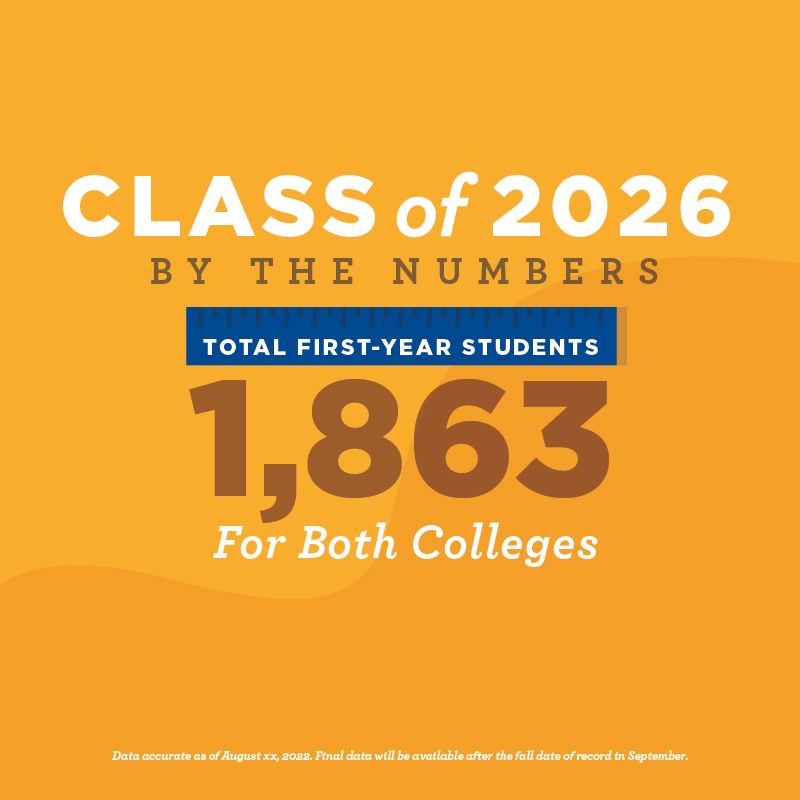
First-generation college students make up about 10.7% of the first-year class at Emory College and 11.4% at Oxford.
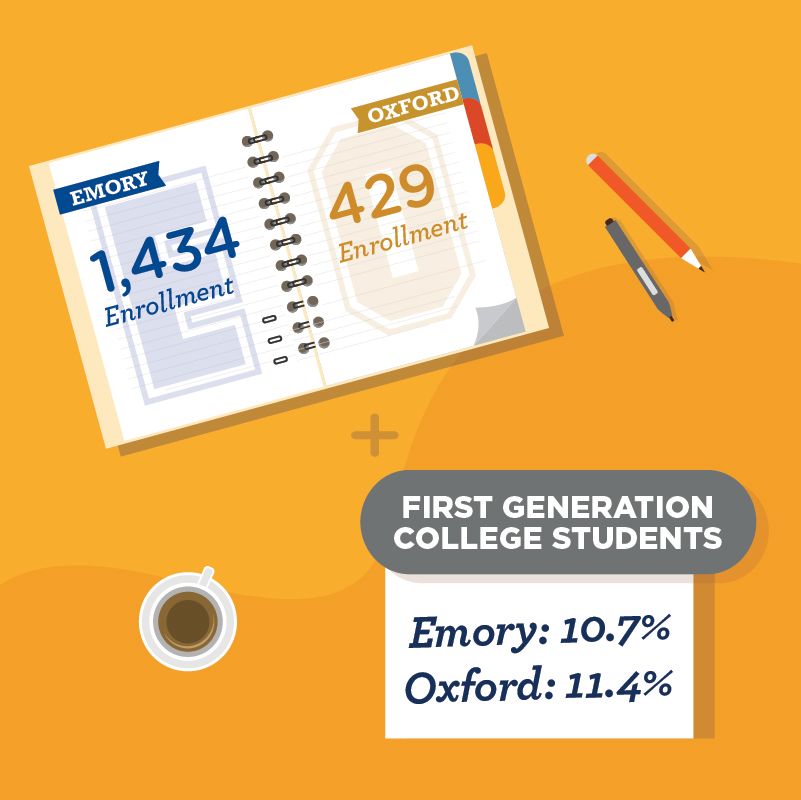
Latting says two factors that have greatly contributed to increasing the diversity of the first-year class are removing the standardized testing requirement and decreasing financial barriers. Emory participates in the Questbridge National College Match program, which matches outstanding high school seniors from low-income households with some of the nation’s best colleges. This year, there are 58 Questbridge scholars in the incoming class — 52 at Emory College and six at Oxford.
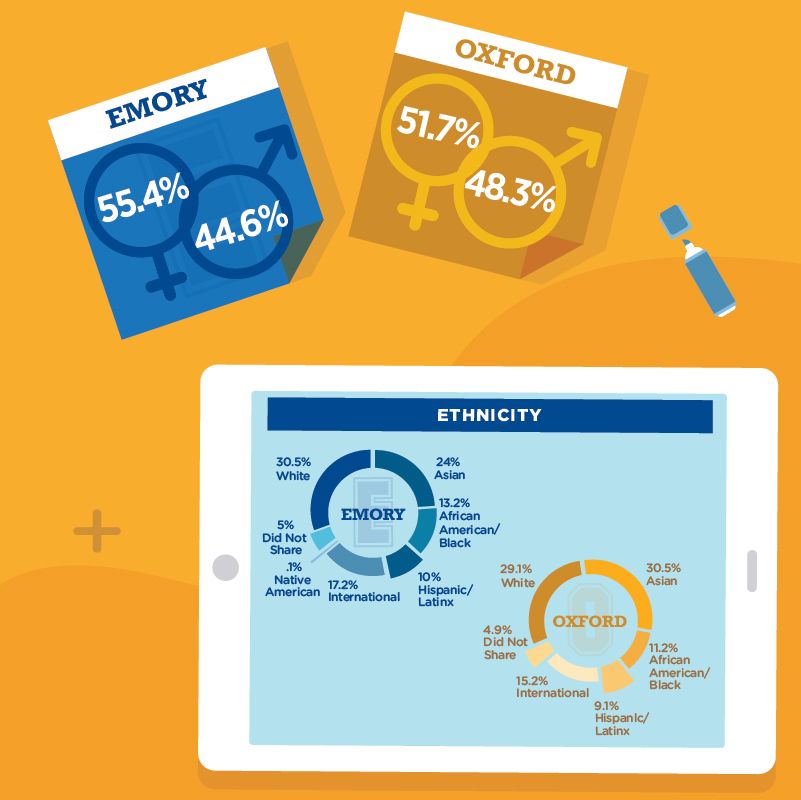
Increasing access has also changed the type of student who applies to Emory. Latting notes that students are more willing to share about their identities and family life in their applications. They bring unique perspectives to campus coupled with a deep desire to apply their scholarship to make positive change in their communities and the world.
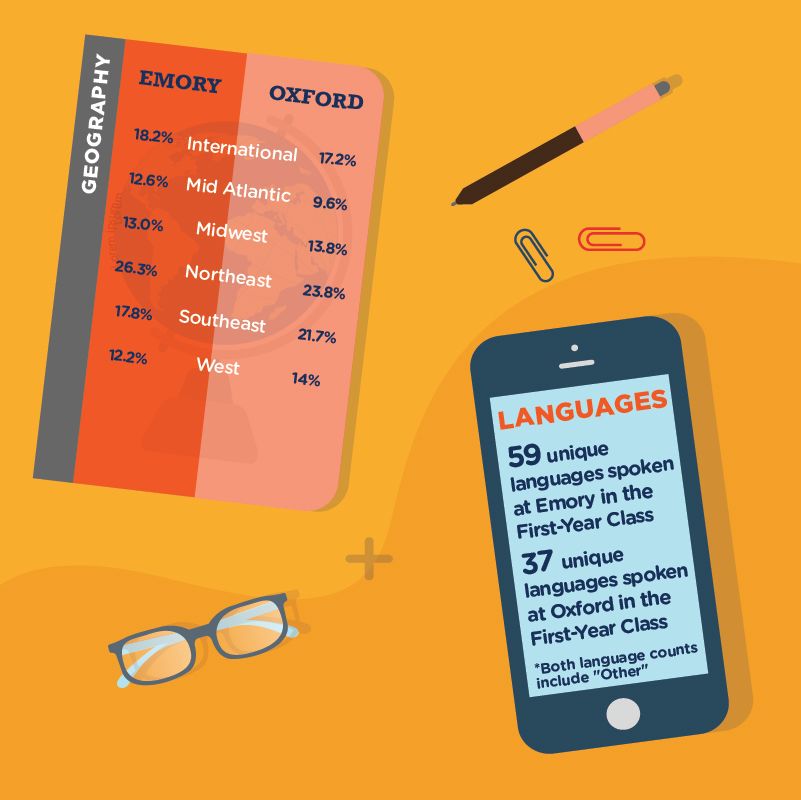
“We are trying to raise that sense of vibrance and diversity by welcoming different perspectives because that’s the kind of community where everybody grows,” Latting says.
“Students today come in with a clearer sense of identity than students did perhaps 10 years ago. It’s progress. There’s an assumption built in there that I matter, and my perspective should be of value.”

Emory College Photos

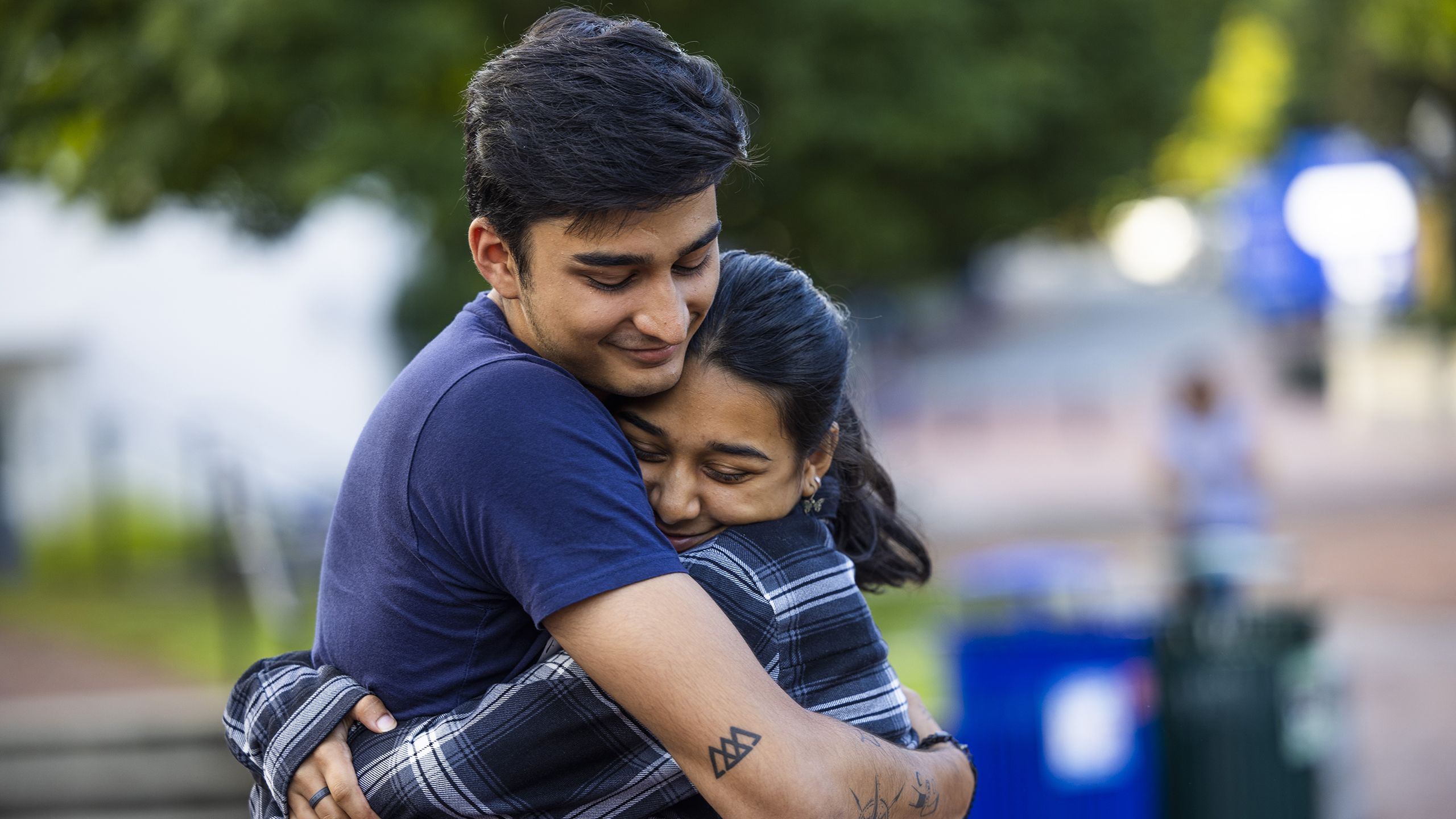
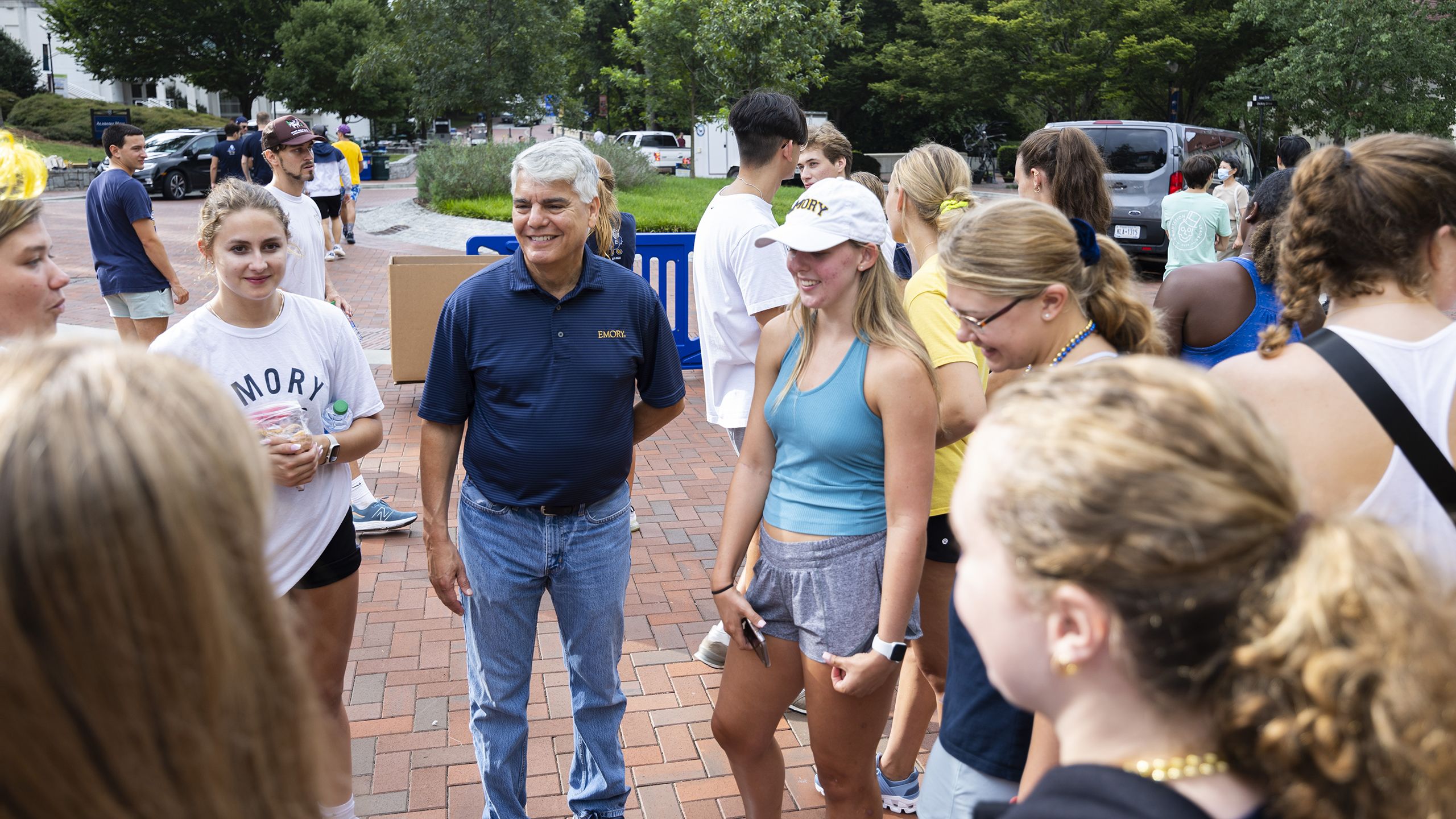
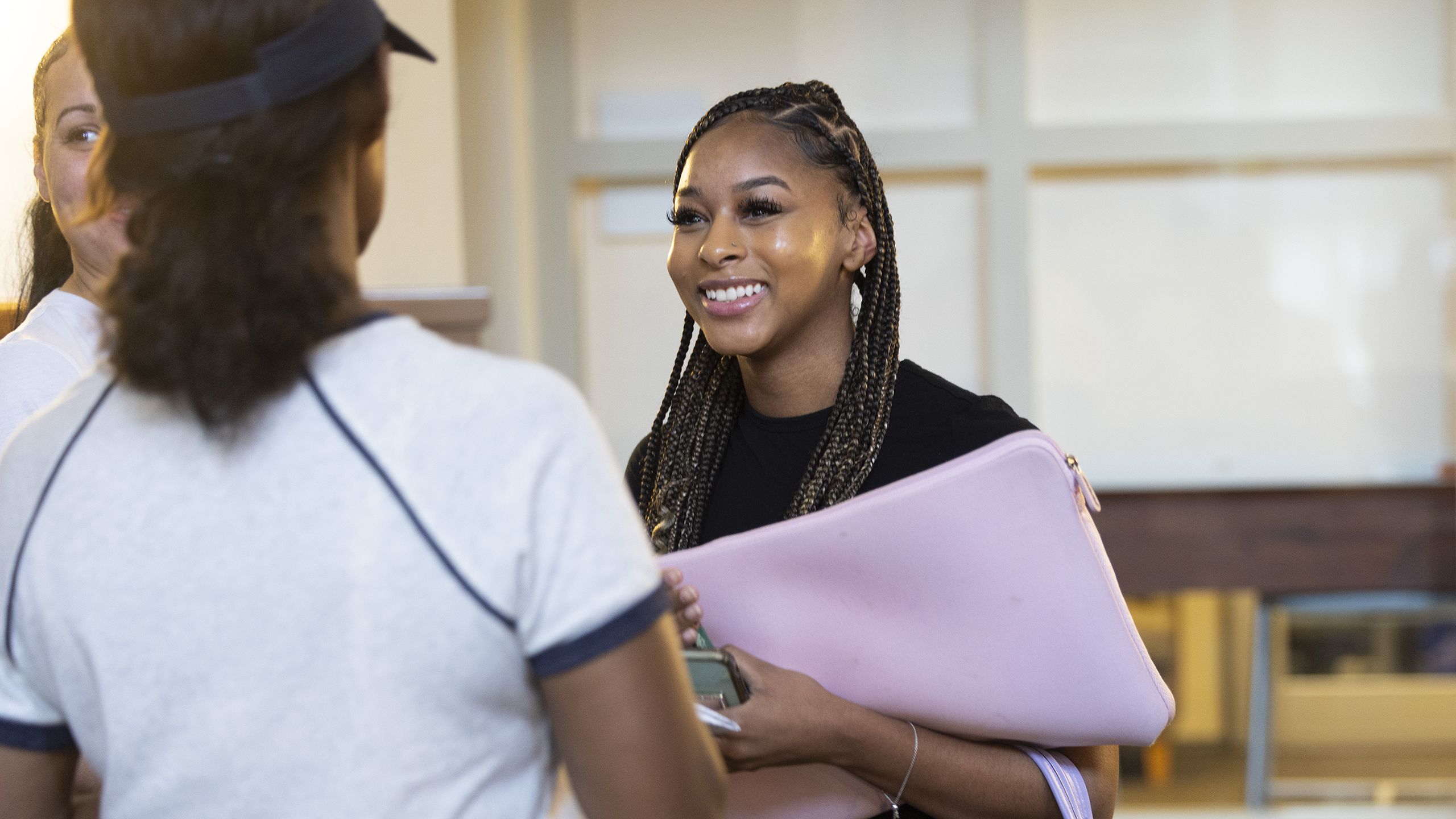
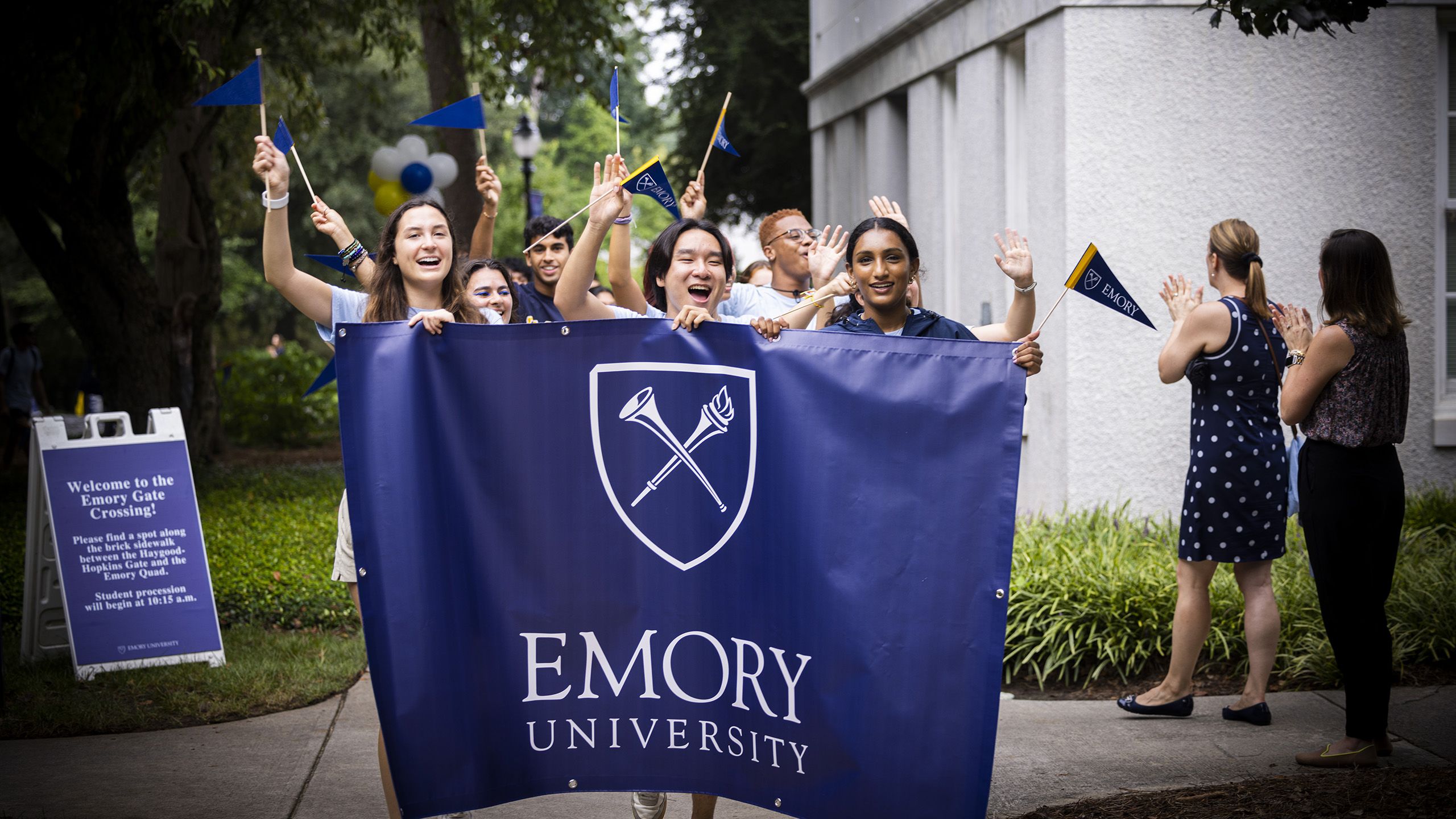
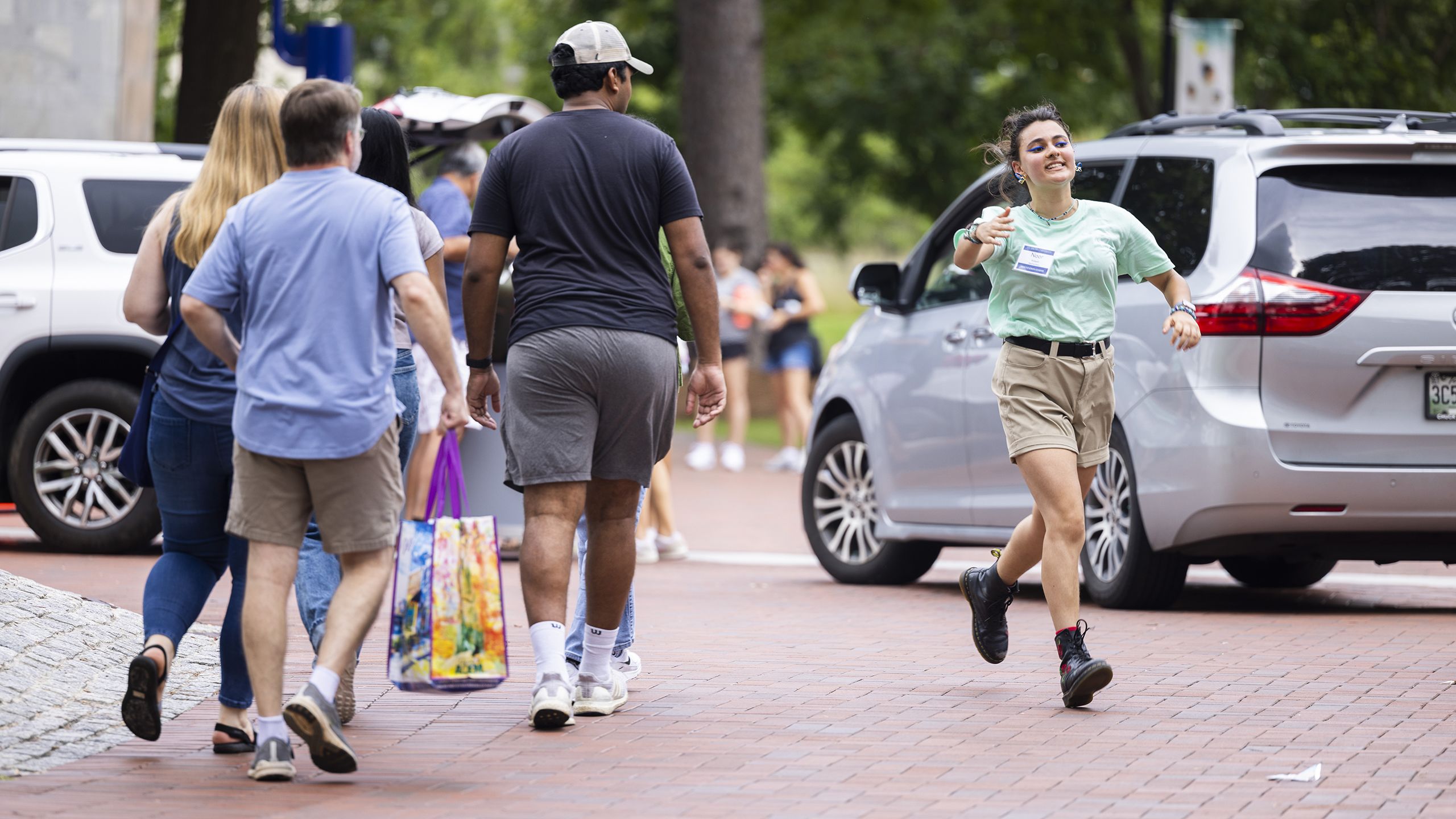
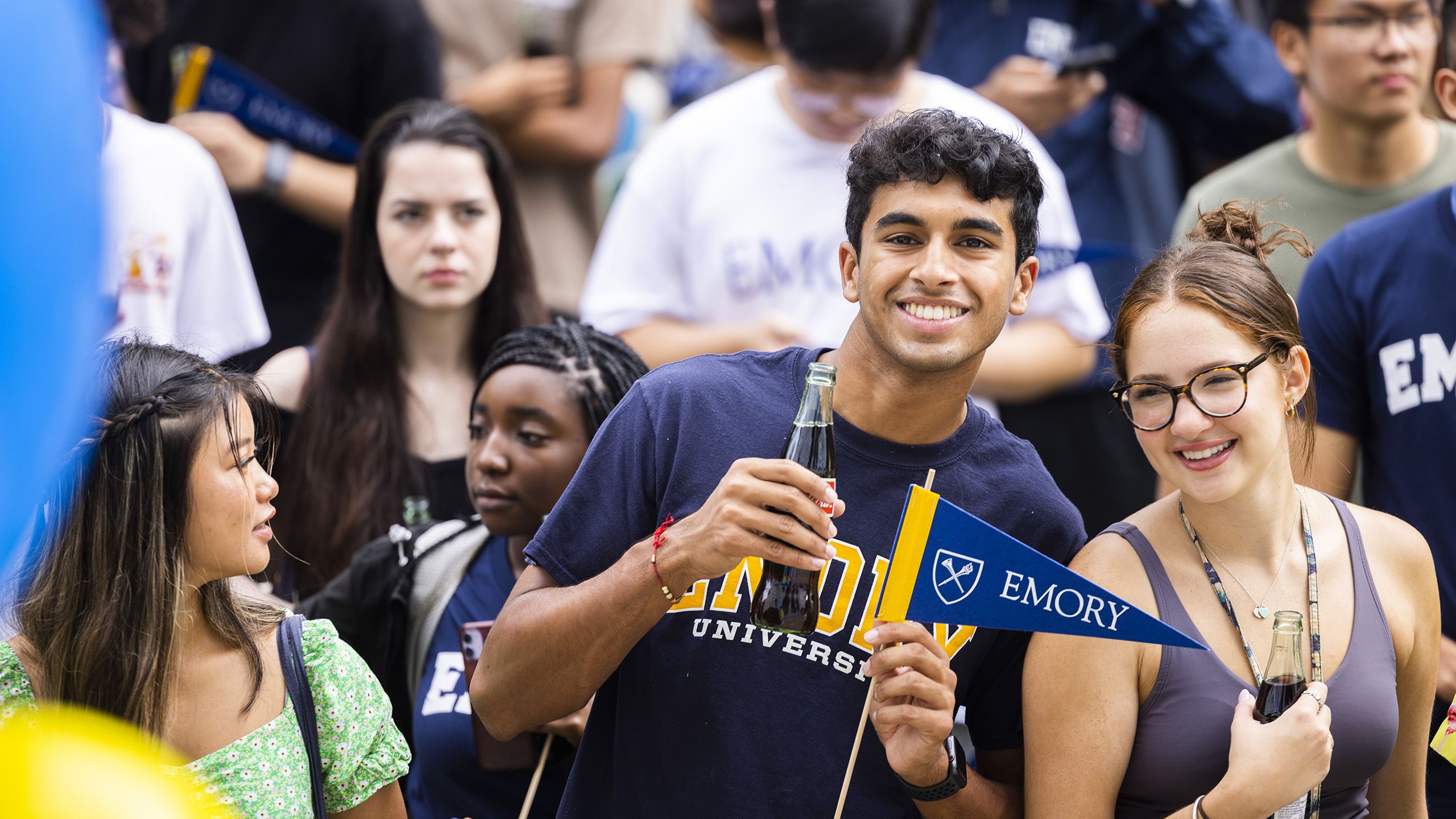
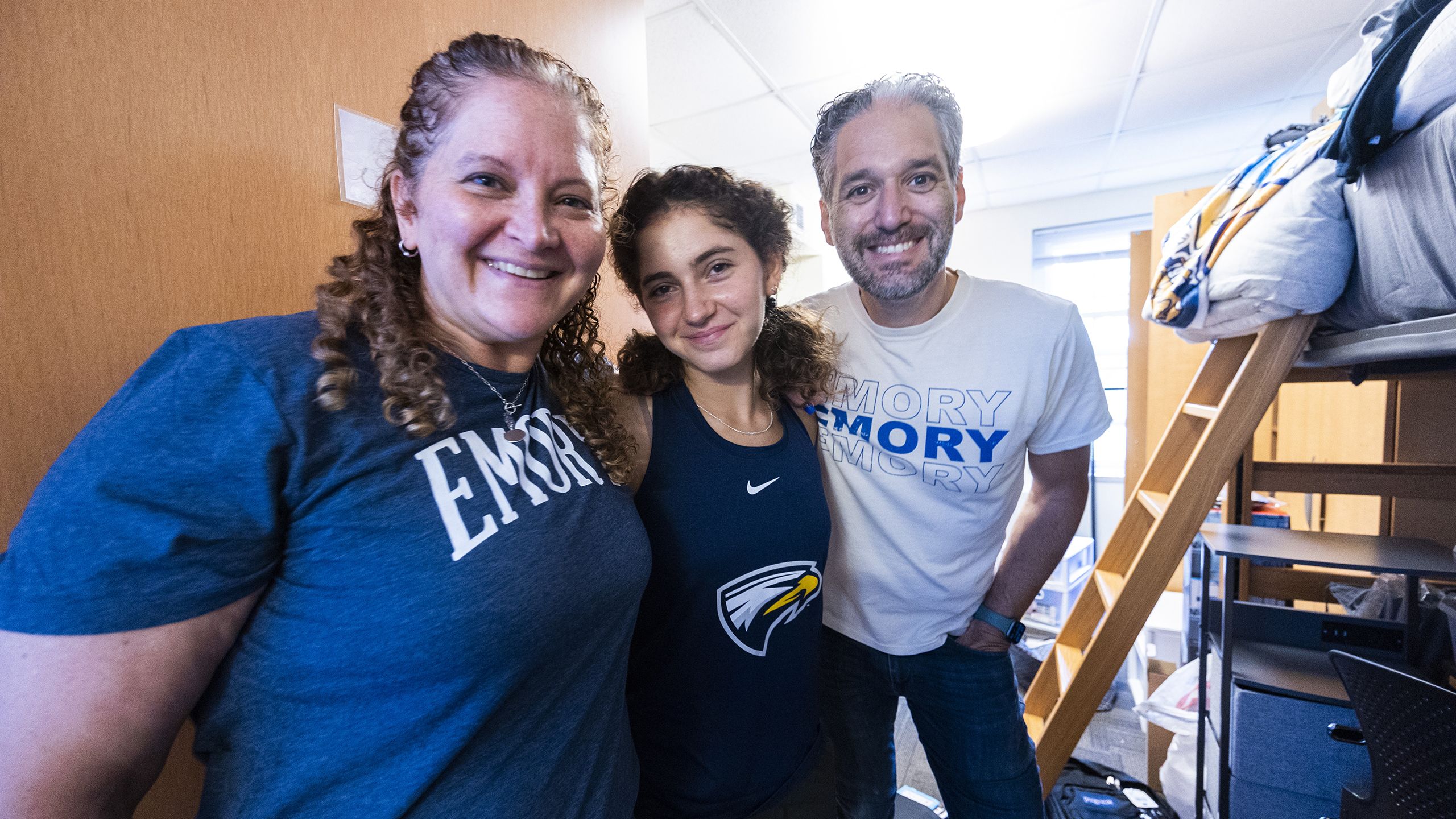







Oxford College Photos

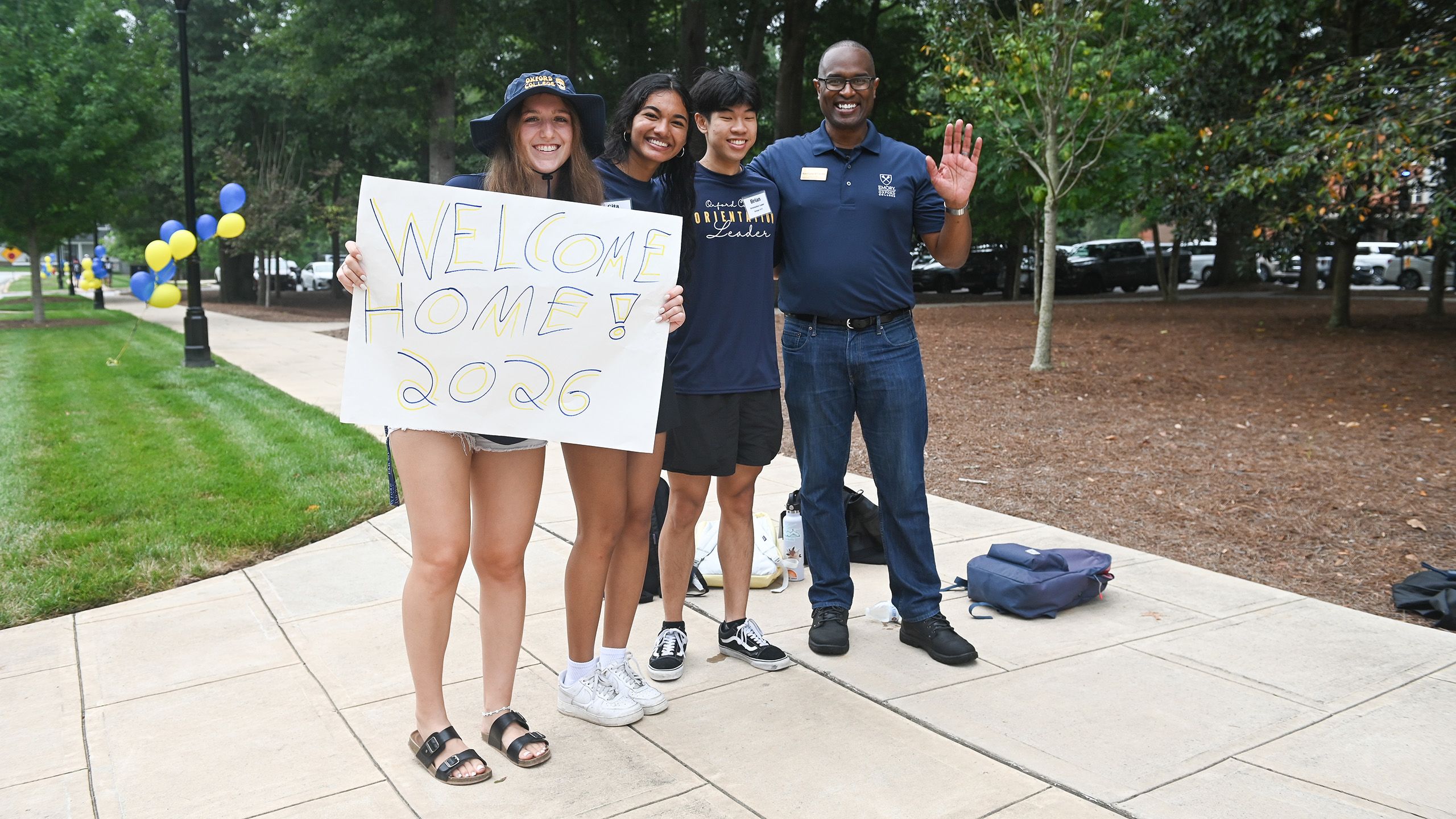
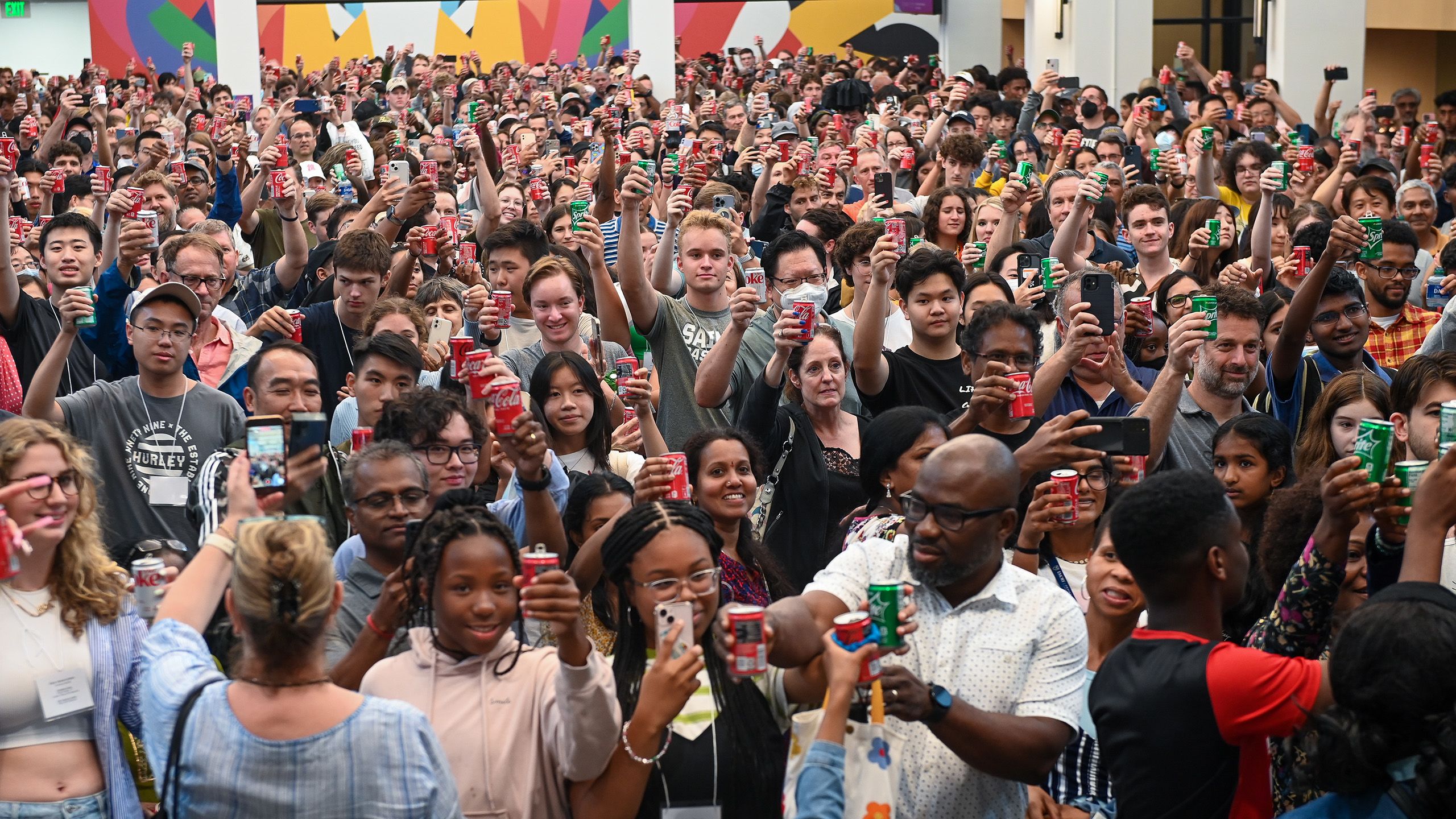
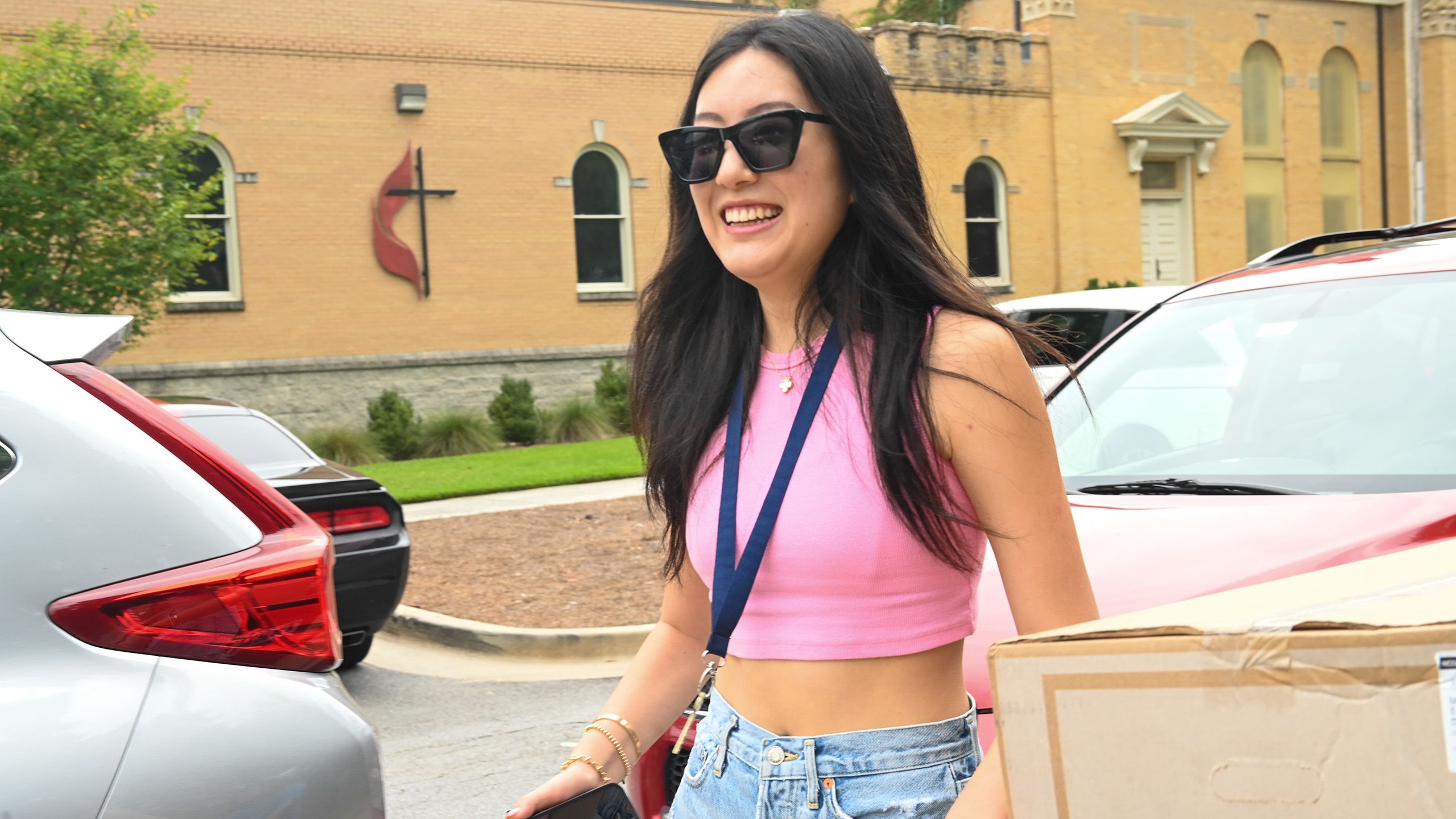
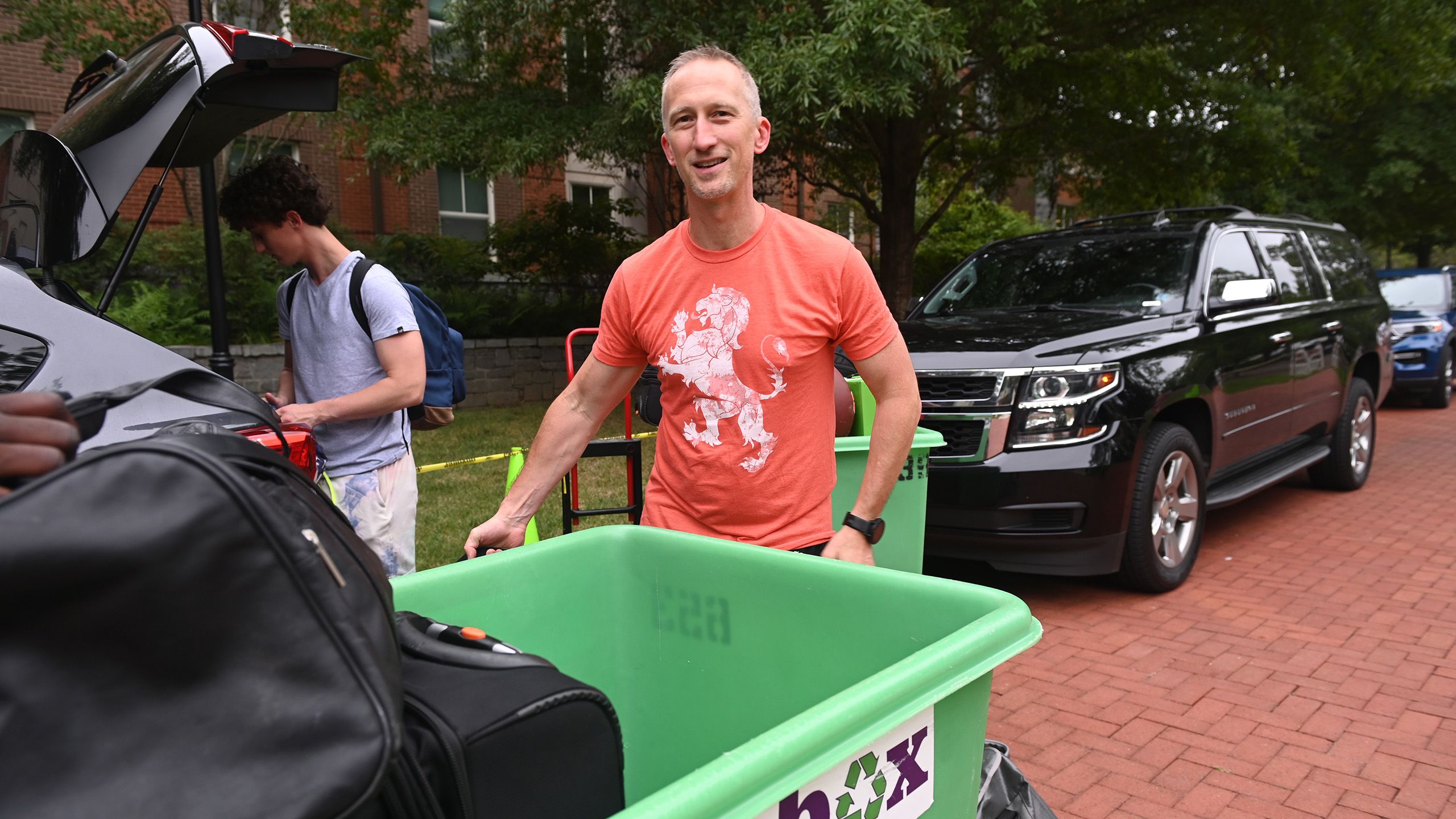
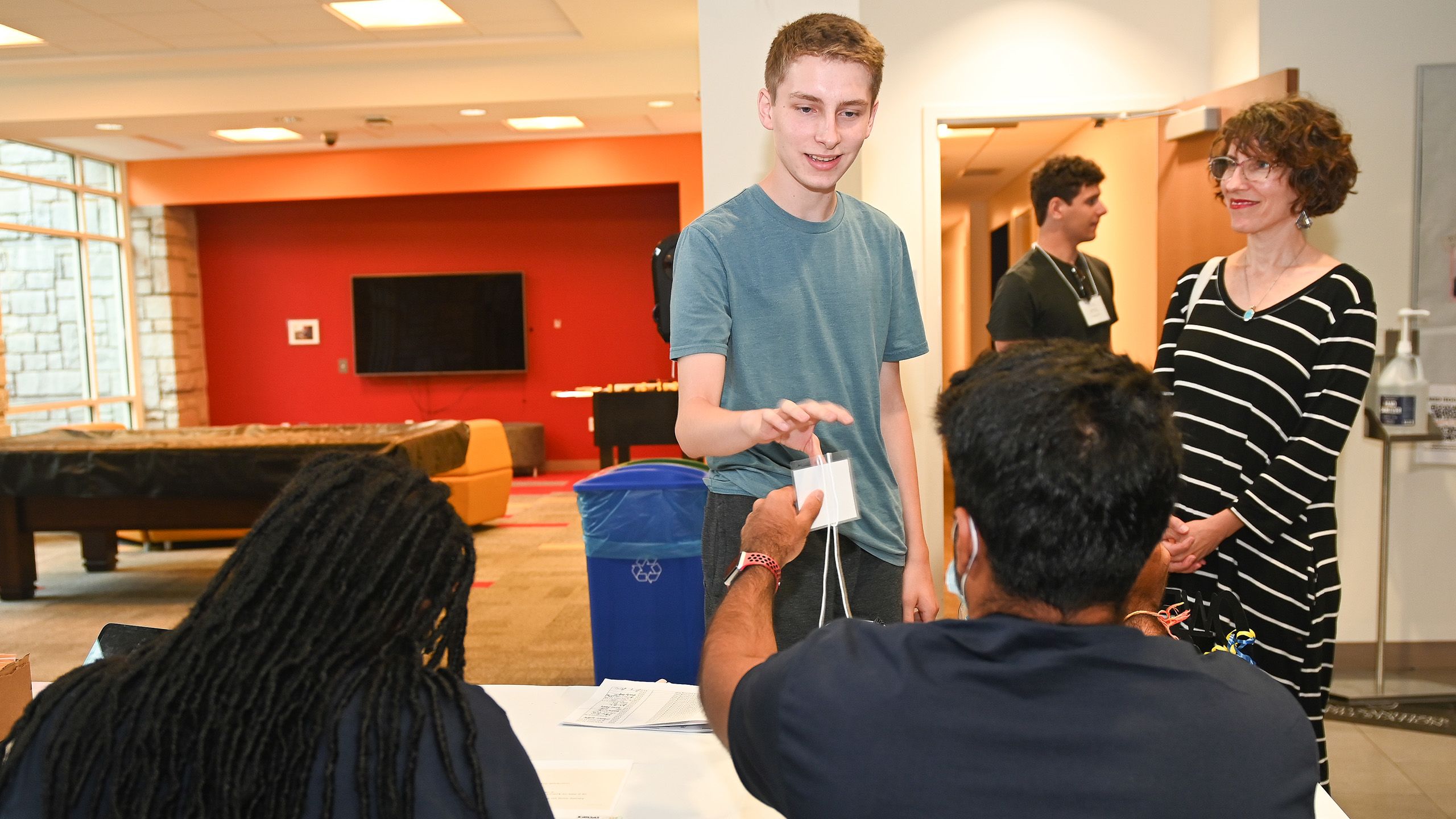
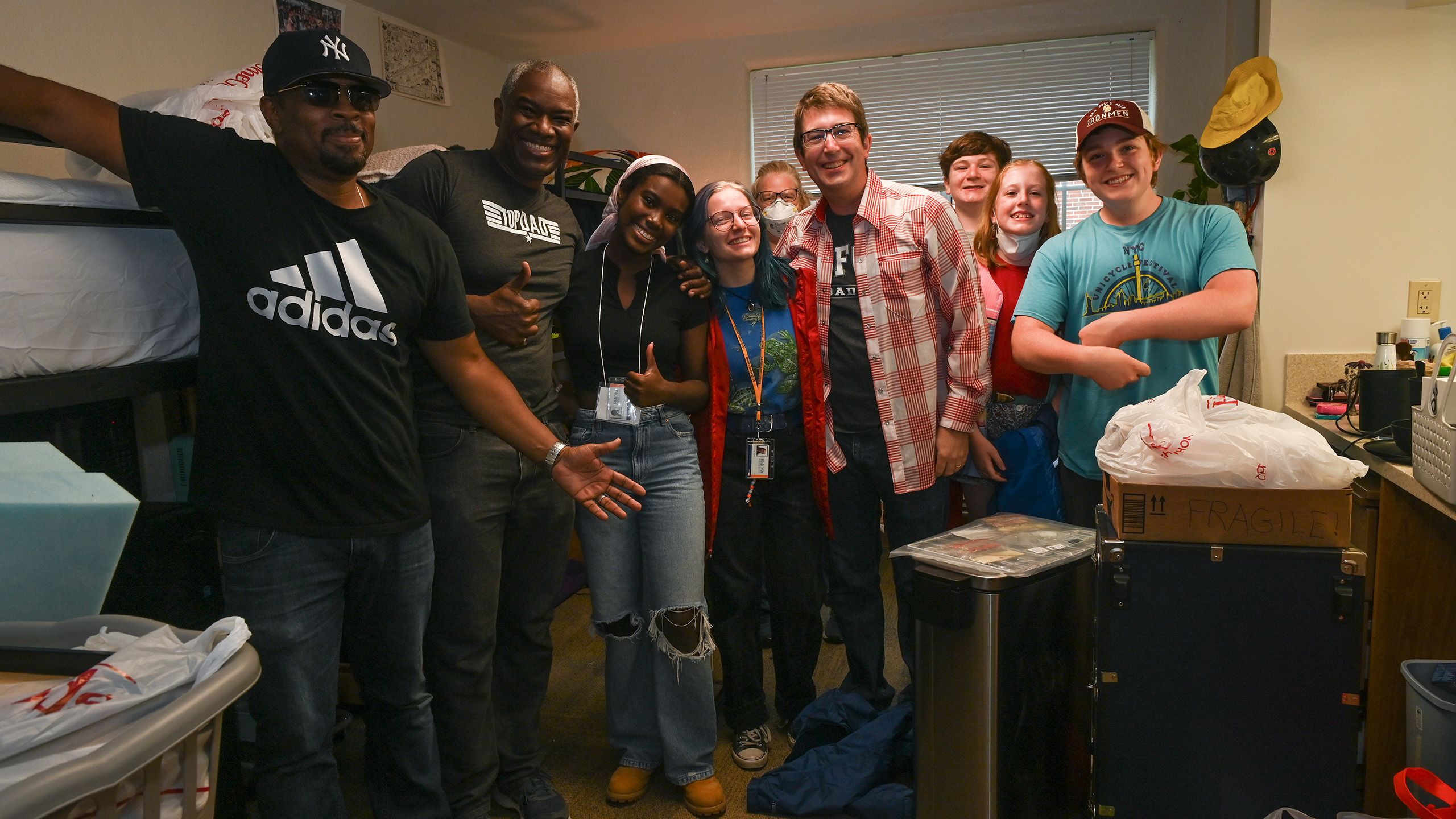
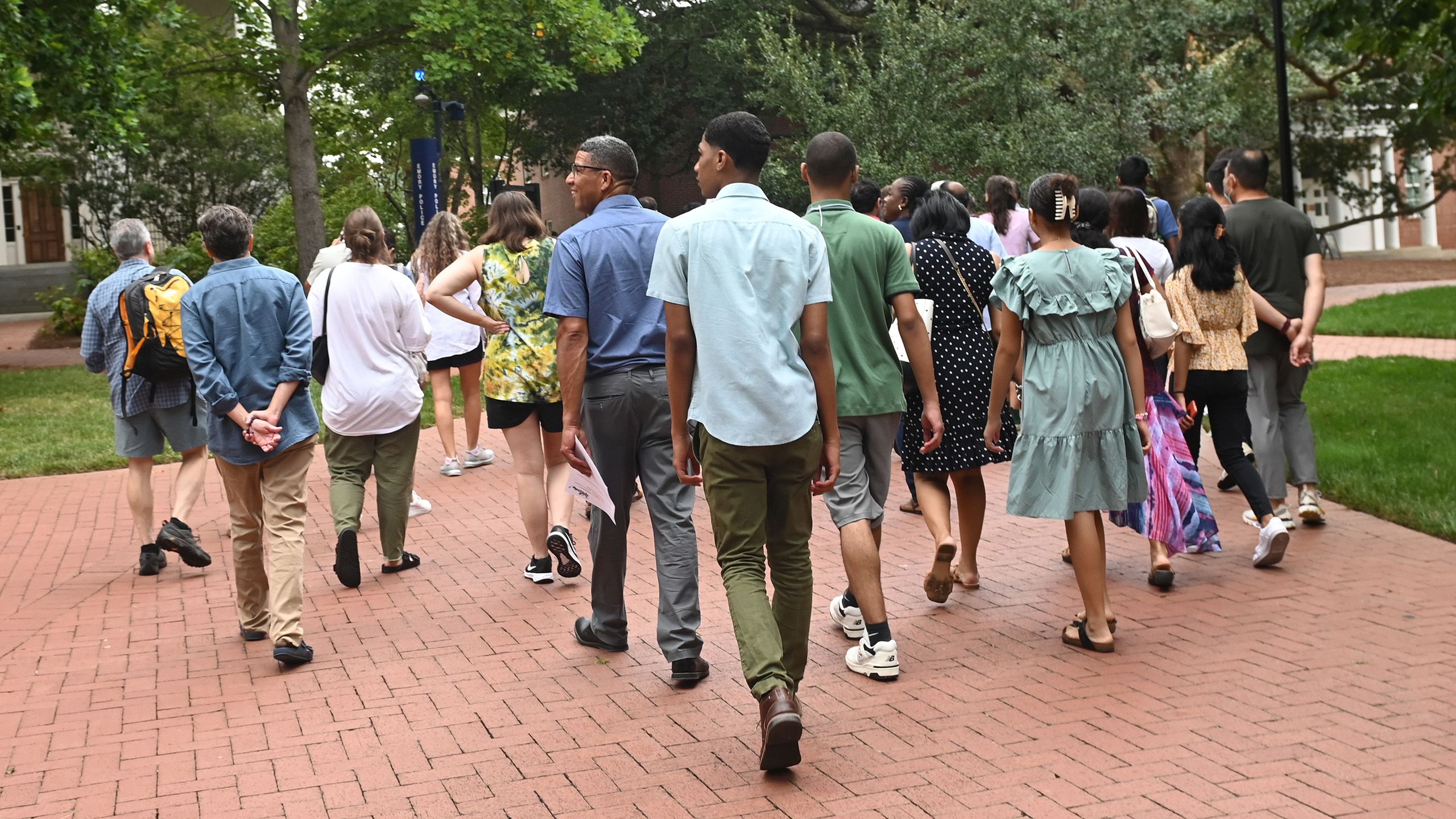







Ready to make their mark

The Class of 2026 is entering Emory at a time of tremendous change on campus and in the world. Their personal lives and educational experiences have been greatly impacted by the COVID-19 pandemic. Many attended some of their high school years online or as part of a hybrid model. Some faced great trials and even greater triumphs.
Considering these myriad experiences, Provost Ravi V. Bellamkonda says the university’s emphasis on student flourishing will focus on developing the whole student. Through a slate of new courses, resources, seminars and extracurricular activities, the Class of 2026, along with all students, will be encouraged to find their purpose, passion and pathway during their time at Emory.
“Emory is an eminent research university — one of the best in the world, one that we can be proud of being part of,” says Bellamkonda, who is also executive vice president for academic affairs. “It is also a beautiful idea: a community that we actively shape through what we bring to it, and that in turn shapes us as individuals, leaders and as a university.
“Students are the cornerstone of the Emory community, and we’re excited to welcome our newest class as we help them nurture their whole selves and shape their futures as thoughtful, centered individuals who serve society through knowledge.”
Here are a few of their stories:
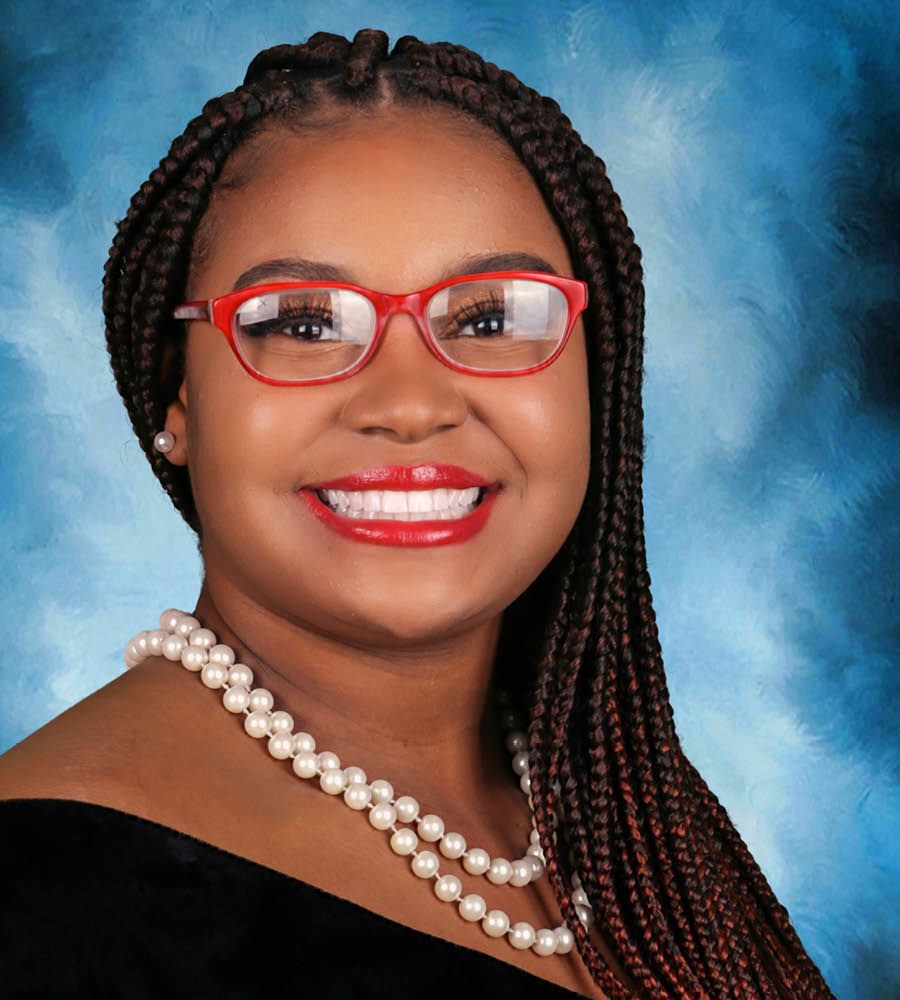
ALICIA MCGLORY, Emory College
Brookhaven, Georgia
Like many first-year students at Emory, Alicia McGlory qualifies as an overachiever. She excelled in all her subjects — her favorites being history and geography — at Cross Keys High School in Brookhaven, Georgia. She served as a leader in several student organizations. Her teachers viewed her as a joy and she served as her graduating class’s salutatorian.
But McGlory’s overachievements don’t stop there. In 2019, her mother fell ill and was diagnosed with an autoimmune disease called Sjögren’s syndrome. The symptoms were debilitating, forcing her mother to visit the hospital every other day. McGlory supported her as best she could while taking classes. When her school district transitioned to remote learning during the COVID-19 pandemic, she took a lead role in caring for her mother at home and did more than her share of cooking, cleaning and other household chores to keep their house running smoothly.
“My mother is my source of inspiration in life — she has struggled so much to provide a good life for me and in turn I want to make her life better,” McGlory says. “I was thrilled to get matched with Emory because I wanted a high-quality education while being able to stay close to my family.”
McGlory matched with Emory through QuestBridge, a national nonprofit that connects high-achieving, low-income students with top colleges and universities and gives them a full four-year scholarship. Emory boasts one of the largest network chapters in the country.
McGlory plans to focus on social studies and the humanities at Emory. “Social studies allows you to delve into the past, observe the present and predict the future to help ensure we can blaze new trails and not repeat old, tired ones,” she says. However, she’s also interested in health sciences, and remains open to studying medicine — maybe to become a plastic surgeon one day.
As a young Black woman, she is passionate about empowering women of color to pursue degrees in higher education and careers in STEM fields. “The importance of a quality education in the Black community and possibility of professional careers is often ignored — many just don’t believe they’re achievable,” she says. “It’s up to me and my generation to lead by example and to encourage and help prepare a new influx of Black doctors, engineers, inventors, entrepreneurs and teachers.”
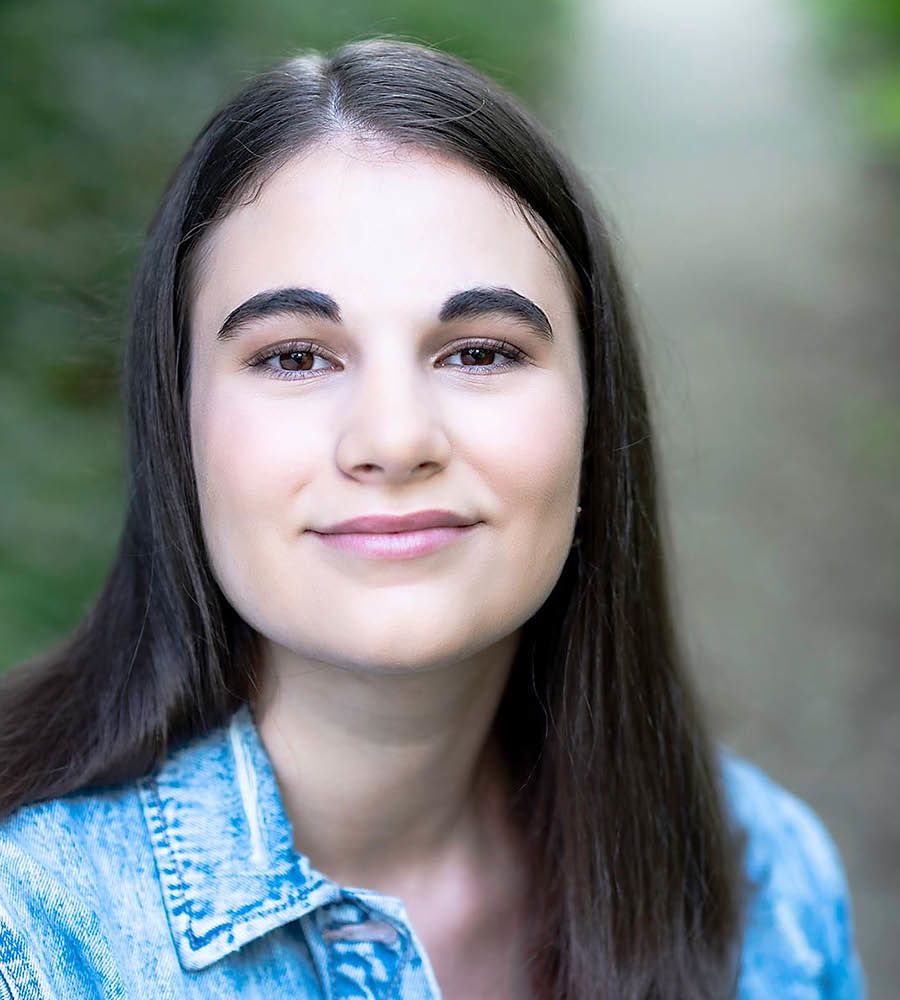
ELIZABETH BRUBAKER, Oxford College
Charlottesville, Virginia
For years, Elizabeth Brubaker’s belief that only adults could make political change held her back from taking action. But as Brubaker watched politicians mishandle issue after issue leading up to the 2020 national elections, she grew frustrated and decided to find out what she could do about it, even if she was just a teenager.
Brubaker saw a post in her social media feed for Generation Ratify’s Lobbying Collective, a youth-led movement to ratify the Equal Rights Amendment, and promptly joined. “Little did I know that over the next few months, I’d become an advocacy leader, help draft legislation soon-to-be introduced into the Virginia General Assembly, and find my passion in a field that I thought I wasn’t cut out for,” she says.
Now a first-year Woodruff Scholar beginning her studies at Emory’s Oxford College, Brubaker is excited to be among like-minded students eager to follow a purpose-driven life. Still undecided about whether she wants to major in political science or international studies — “I’ve long been curious about working for the U.S. State Department overseas,” she says — Brubaker wants to keep branching out and develop a wide breadth of knowledge in her undergraduate years.
“Despite my social anxiety, I’m always open to try things once,” she says. “For instance, this summer I switched things up to work on an election campaign for U.S. House candidate Josh Throneburg.” She plans to continue working as a virtual staffer for the campaign even as she starts her studies at Oxford this fall.
Brubaker loves to learn through hands-on experiences, and she can’t wait to expand her social justice advocacy horizons by working for local organizations and politicians, especially those that promote gender equality.
“One of the top things that drew me to Emory was its commitment to offering students internship opportunities in a wide variety of fields,” she says.
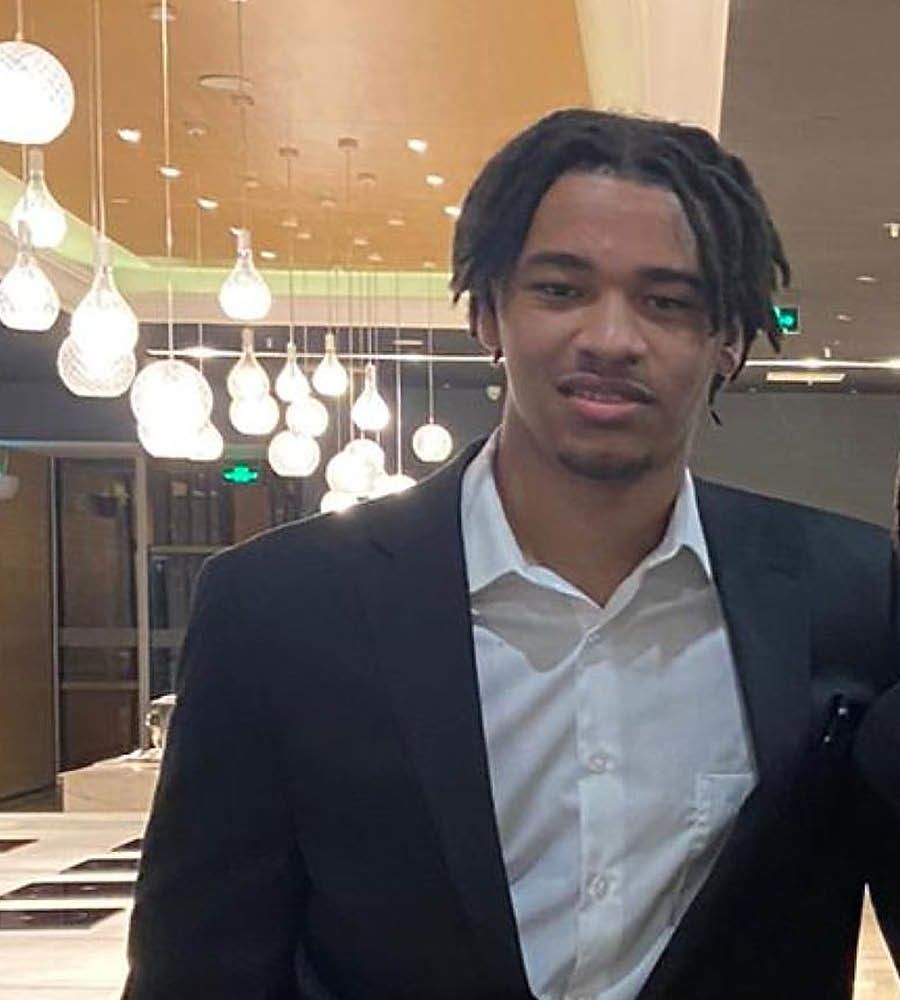
MICHAEL EKERUE, Emory College
Kinshasa, Democratic Republic of the Congo
With his mother working in the diplomatic service for the Swiss government, Michael Ekerue has lived in six countries — Switzerland, Nigeria, Indonesia, Germany, the U.S. and the Democratic Republic of the Congo (DRC). He applied to Emory as an international baccalaureate (IB) student from the American School of Kinshasa in the DRC.
“It wasn’t always easy moving around, but I have learned to cherish all of the opportunities I’ve been given so far to learn firsthand about so many different cultures,” says Ekerue, who speaks four different languages — English, German, Swiss-German and French. “And now I’m excited to study in Emory’s highly collaborative and rigorous environment while living in such a culturally rich city like Atlanta.”
Ekerue is starting his college endeavors on a pre-business track at Emory College. “At one point, I was dead set on studying medicine, but I discovered I enjoyed business management during my IB studies in high school,” he says.
During the pandemic, he was particularly fascinated by watching how local small businesses managed to survive despite the difficult challenges they faced.
However, Ekerue still hopes to take a few biology courses to keep his mind sharp and his options open. “I really appreciate the flexibility that Emory gives to students who want to explore a diverse range of areas of study,” he says.
Seeing himself as “hyper-curious” and optimistic, Ekerue says he likes indulging a wide range of passions — from organizing efforts to help those in need to snowboarding with friends. And he’s eager to find discover new passions as an international student at Emory. “I’m looking forward to further exploring who I am, and I’m hopeful that Emory will help me to grow as a person and allow my ideas to flourish.”
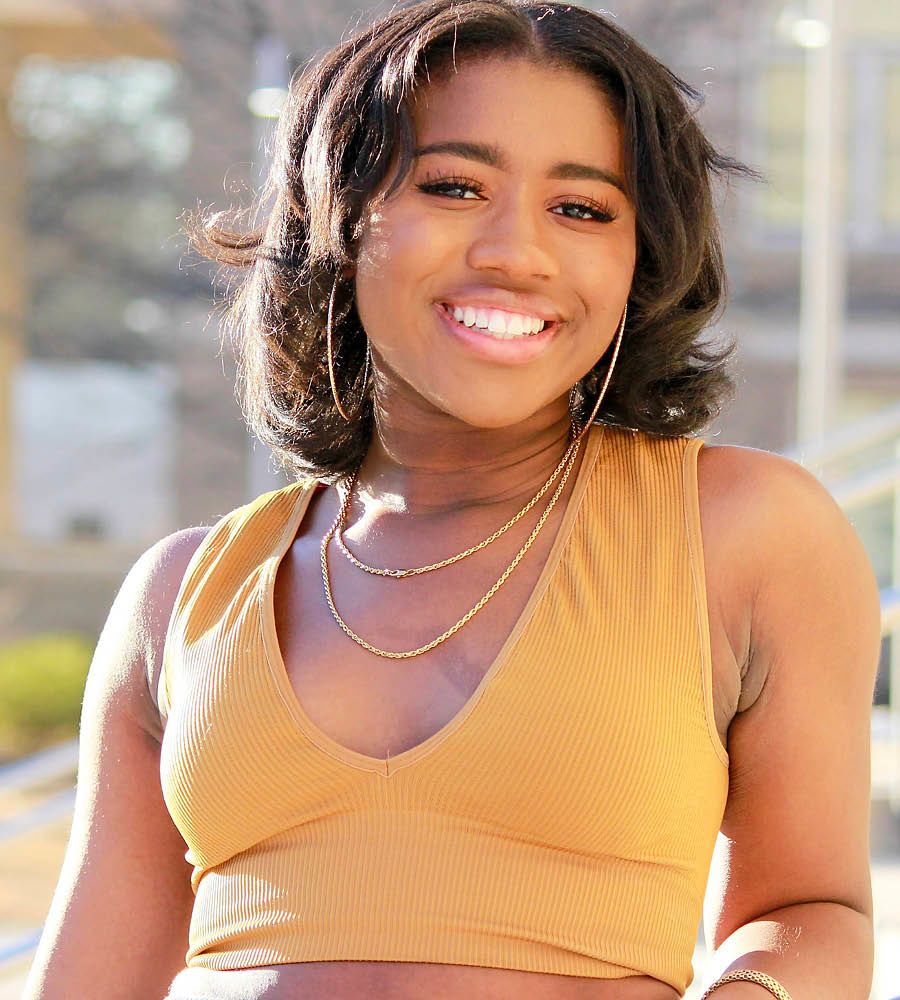
ISABELLA ADEOLA, Oxford College
Little Rock, Arkansas
You could call Isabella Adeola something of a brainiac. And not just because she’s smart — she is, of course — but also because she’s fascinated by that complex organ that resides in our craniums.
“I’ve always been interested in the brain — the scientific, biological part,” says Adeola, who plans to pursue pre-med and neuroscience studies as a Woodruff Scholar at Emory’s Oxford College. “I’ve always been interested in life’s unanswered questions. Since there’s so much about the brain that we don’t know about, I’ve always wanted to study it. It’s such an amazing, intricate part of the human body. I want to unlock its secrets.”
But her interest in medicine isn’t strictly biological; she’s also very keen on its ethics and social determinants. “I believe it’s very important not to treat humans as just their biological parts, but also who they are and what they are going through, psychologically, sociologically, economically and more,” Adeola says. “When treating someone, doctors and researchers need to know everything that goes into what it means to be that very specific human.”
A daughter of Nigerian immigrants who moved to the U.S. in the 1990s and eventually settled in Little Rock, Arkansas, Adeola completed her high school senior capstone project on the “immigrant paradox.” That’s the theory that immigrant students outperform their native-born counterparts in academics, despite all the obstacles, yet upward mobility is slowed across generations because of some deficiency in American culture.
“I’m a first-generation American and just seeing that experience around me ... I really wanted to see and contextualize what it means to be a minority, be Black in America,” she says.
For Adeola, Emory represents everything she wants to guide her through the next big step in her life. “It’s got everything I want — the expertise in neuroscience, the emphasis on the humanities and ethics, all wound together in an interdisciplinary approach,” she says. “I always want to be on the next thing, the next move, the next endeavor, the next goals, because that’s what makes me feel most alive and what makes me feel most human. I think Emory will give me all that and more so that I can dedicate part of myself to making the world a better place to live in.”
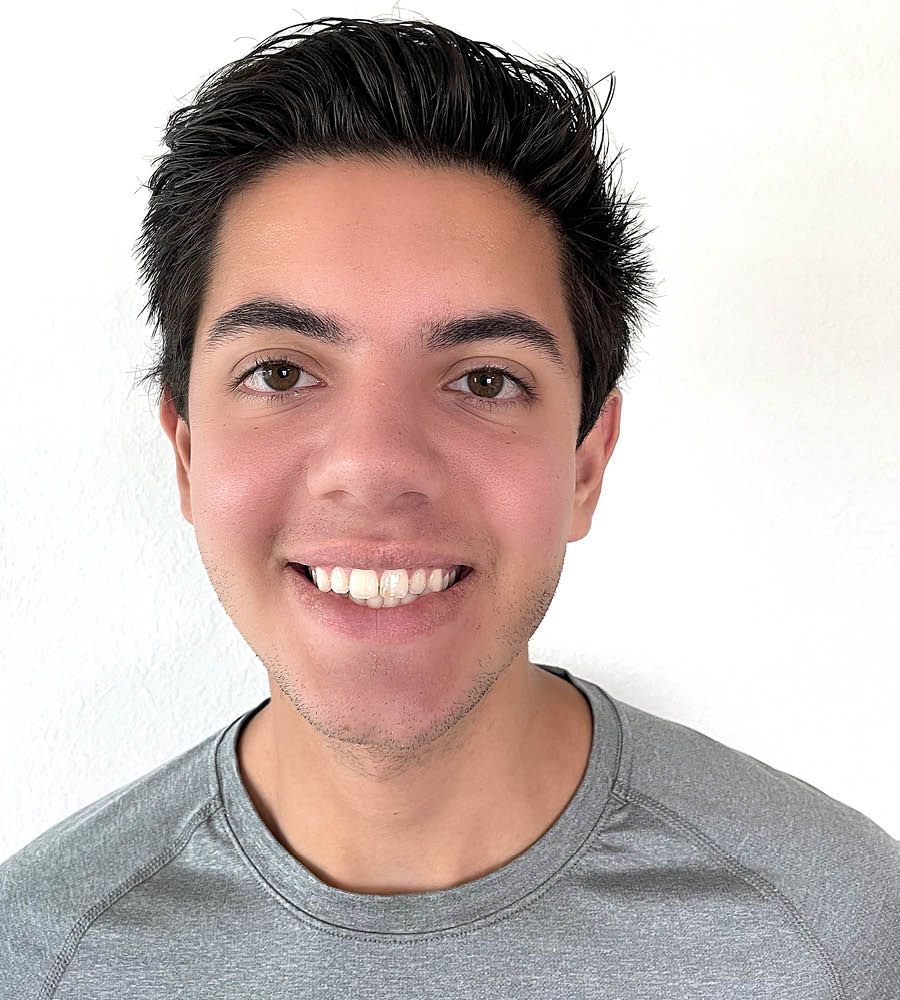
LUCAS LOBO, Emory College
Towson, Maryland
What brought Lucas Lobo to Emory was a matter of debate — a topic he excelled in at Calvert Hall High School in Towson, Maryland.
“Emory’s debate team is recognized as one of the best in the country, and I actually had been judged in high school tournaments by some of the university’s coaches,” Lobo says. “I knew that Emory offered debate scholarships and that alone was reason enough to apply, but as I did more research about the school, I realized that the campus environment and academic offerings aligned overwhelmingly with what I was looking for.”
Lobo did apply and became a Woodruff Scholar in debate at Emory College, where he hopes to major in economics and math, or maybe pursue quantitative social sciences. “Data and statistics have become an increasingly large part of society,” Lobo says. “I want to see the ways in which data and numbers can influence society for the better — and not just in things like technology and business, but also social justice and public policy.”
Lobo is proud of his Hispanic heritage, and it’s a complex lineage. His mom’s parents are from Cuba, his dad’s father is from Spain and his dad’s mother is from Chile. “Though I didn’t grow up speaking Spanish as a child, I was undoubtedly influenced by my heritage — listening to anecdotes about my Pop-Pop’s subsistence farm, my Nana’s recipes from childhood or my Abuelos’ transition from Cuban to American academia,” Lobo says.
Then came the intersection of his Hispanic identity and his newfound love for debate. “What admittedly began as a resume booster turned into a place of self-reflection,” Lobo says. “My world views broadened when through debate exercises, I advocated for bills on refugee asylum and arms reduction to Central American countries.”
Through his debate team, Lobo became more aware of his cultural background, as well as those of others. “Despite its adversarial nature, debate actually made me a more empathetic individual,” he says.
That empathy led Lobo to start a high school chapter of CASA, a national nonprofit that helps expedite the processes of the foster care system. “It’s something my parents have been involved with for years, and I wanted to build awareness with my classmates and my community,” he says. “It’s an important effort to make the lives of these kids better and hopefully help them find a permanent home.”
He aims to connect with the Georgia CASA effort after he moves to Atlanta, and he also wants to help with other social justice efforts at Emory. “Ideally, eventually, I want to be able to use my study of data to help organizations and causes succeed,” Lobo says.
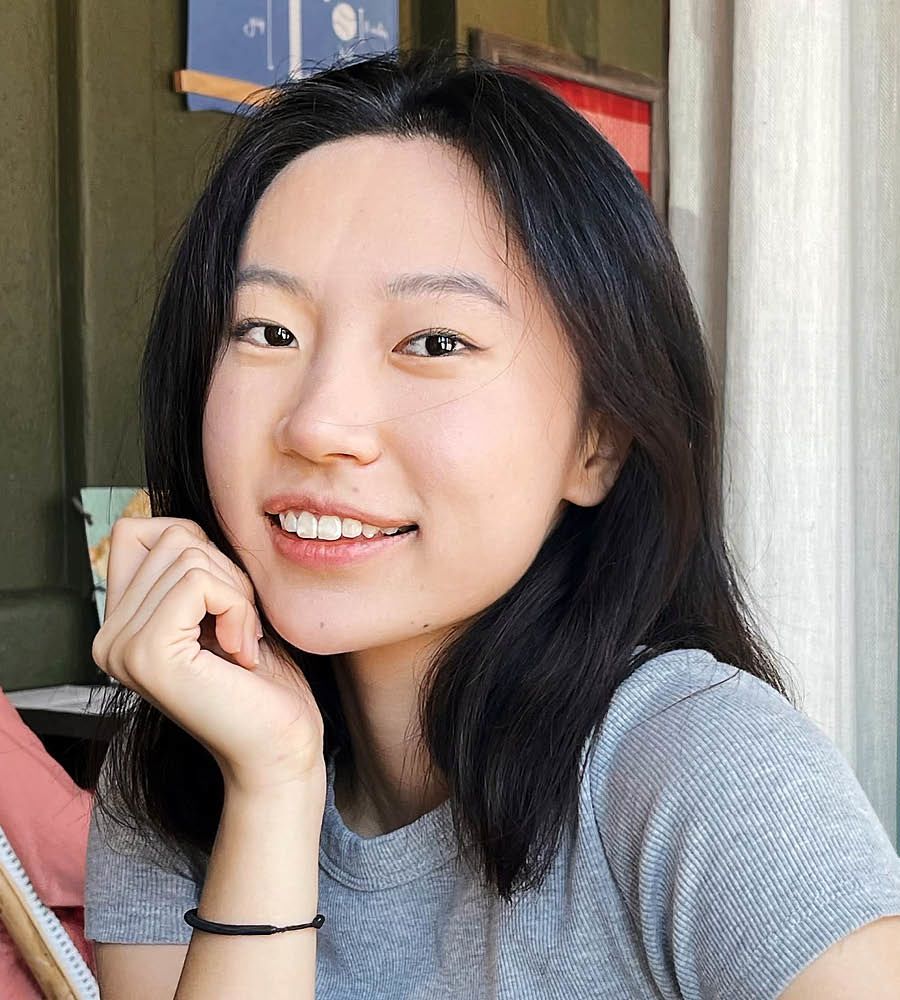
JACKIE ZHOU, Oxford College
Shanghai, China (c/o Windham, Connecticut)
For a long while, Jackie Zhou feared that she would have an obligation to prioritize family — and the traditional roles of being a housewife in China, where she lived for the first 15 years of her life before coming to the U.S. to attend high school. Fortunately, her mother and grandmother guided her down a different path.
“They told me that their purpose was to ‘raise me up,’” Zhou says. “They are so proud of the independent and diligent woman that I’ve become, even though they themselves didn’t have the opportunities I do now.”
Because Zhou’s grandmother wasn’t allowed to attend school, she pushed her daughter hard, taking her from a little village in the country to the big city of Shanghai and making sure she had a good education, Zhou says. “And then both my grandma and mom pushed me even harder, sending me to high school in the U.S. so I wasn’t restricted in any way and could attain whatever I put my mind to.”
It’s Zhou’s goal to take full advantage of what these two strong women gave her and pay it forward. At Emory’s Oxford College, she plans to study sociology, philosophy and logic, to prepare for a career in law. “As a public interest attorney, I want to fight for women’s rights and changing social conventions, helping more women leave the household and realize dreams beyond raising children,” she says.
Volunteering at the Shanghai Legal Aid Center opened her eyes that the actual application of justice wasn’t always just — and she yearns to play a role in changing the way legal systems work for the better.
At Oxford and Emory she hopes to explore all her academic options, participate in clubs and make many friends along the way. “Everyone I’ve talked to so far seems to have similar passions and interests, and they’re not looking just to train for their careers or jobs, but become better people,” Zhou says. “That really makes me believe the university is the right place for me.”
ABOUT THIS STORY | Story written by Kelundra Smith. Student profiles written by Roger Slavens. Emory campus photos by Kay Hinton. Video by Corey Broman-Fulks and Stephen Nowland. Infographic by Angela Vellino. Design by Linda Dobson.


To learn more about Emory, please visit:
Emory University
Emory News Center

